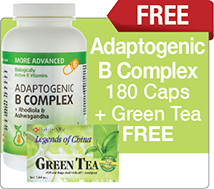Narcolepsy
Updated Aug. 14th, 2019
Narcolepsy is a nervous system disorder that causes excessive sleepiness and can result in frequent daytime attacks of sudden sleep. The cause of narcolepsy is still unknown, although it tends to run in families and likely has a genetic association. Narcoleptics have an altered order and length of sleep cycles which results in less deep and restorative sleep at night, requiring the individual to obtain extra sleep during the day.
Sleep Attacks
This condition is most well known for its periods of extreme drowsiness that are followed by a sleep attack, or sudden onset of sleep which can occur while performing other activities, such as talking, driving, or walking.
Interestingly, narcolepsy sufferers can often enter into REM (rapid eye movement) sleep within minutes of falling asleep, whereas normal individuals take an hour or more to reach this stage. For more information on sleep cycles, please click here for our sleep article. Sleep attacks generally last for about 15 minutes, after which the sufferer wakes feeling refreshed. They can be triggered by eating, or other activities that may result in light drowsiness in a normal individual.
Other Symptoms
Other symptoms of narcolepsy may include sleep paralysis and cataplexy. Sleep paralysis is characterized by the sufferer not being able to move their body as they start falling asleep or after first waking. This paralysis make last for up to 15 minutes. Cataplexy is a sudden loss of muscle control triggered by strong emotions, such as laughter, anger, or fear that causes the body to suddenly go limp. These attacks can be as short as 30 seconds, or can last several minutes, during which the person will be unable to move. Hallucinations are also possible in narcoleptics.
Testing
Because the cause is not fully known, narcolepsy is characterized by the above symptoms. In general, testing is used to rule out other sleep conditions that may be causing excessive sleepiness such as: insomnia, restless leg syndrome, seizures, and sleep apnea. Usually testing will include a sleep study, and a multiple sleep latency test (MSLT) to see how long it takes to fall asleep during a daytime nap. Narcolepsy sufferers take significantly less time to achieve a state of sleep in this test.
Risks and Complications
Because of the sudden nature of sleep attacks, there can be a number of different problems associated with narcolepsy. If episodes occur during driving, operating machinery, or other important tasks, severe injury can occur. In many places there are restrictions on the drivers licenses of narcolepsy sufferers. It is also often difficult for sufferers to function at work and social activities because of their symptoms, and social stigmas can often develop. Narcolepsy can be mistaken for a number of other conditions, or even as a symptom of recreational drug use, and diagnosis can be delayed resulting in unnecessary pain and frustration.
Conventional Treatments
Medications are often used to help sufferers stay awake. These can include several different stimulants, or some antidepressant medications. None of these treatments are curative, although they can help to reduce the frequency and duration of sleep attacks and other symptoms. Some of these drugs can have significant side effects. For more information on medications, please speak to your medical doctor.
Natural Stimulants
There are a number of natural stimulants that can help promote wakefulness in people having difficulty. Members of the ginseng family can be useful in maintaining energy levels. For more information on ginsengs, please click here. Adrenal support herbs and vitamins can all help to improve energy levels and help stave off sleepiness. Gingko biloba can help to improve alertness by increasing blood flow to the brain. There are a number of substances that can help improve energy levels. For more information, please see our energy article here.
Controlling the Symptoms
Because we don't completely understand narcolepsy, there is currently no cure. Instead, treatment focuses on controlling the symptoms. Some things that can help are:
- Maintain a regular sleep schedule
- Avoid alcohol, caffeine, and nicotine
- Eat light meals throughout the day
- Avoid heavy foods and heavy meals, especially prior to activity
- Take planned naps periodically to avoid sleep attacks
- Schedule brief naps after meals whenever possible
- Exercise regularly
Interestingly, some narcoleptics find that they simply have a nocturnal body clock and that having a night-shift occupation can help them to align their activity schedule with their body's natural sleep schedule. This can even help some sufferers avoid stimulant medications altogether. Avoiding other stimulants and depressants (caffeine, nicotine and alcohol) can help your body to maintain its own natural rhythm and avoid disturbing the sleep cycle. Exercising regularly can help to promote a more regulated sleep schedule as well as help prevent weight gain. Exercise also helps with stress management, which can reduce the body's excessive response to heightened emotions (cataplexy). Coming to know your own symptoms and triggers over time can help you create a schedule and routine that works for you and your body.






















